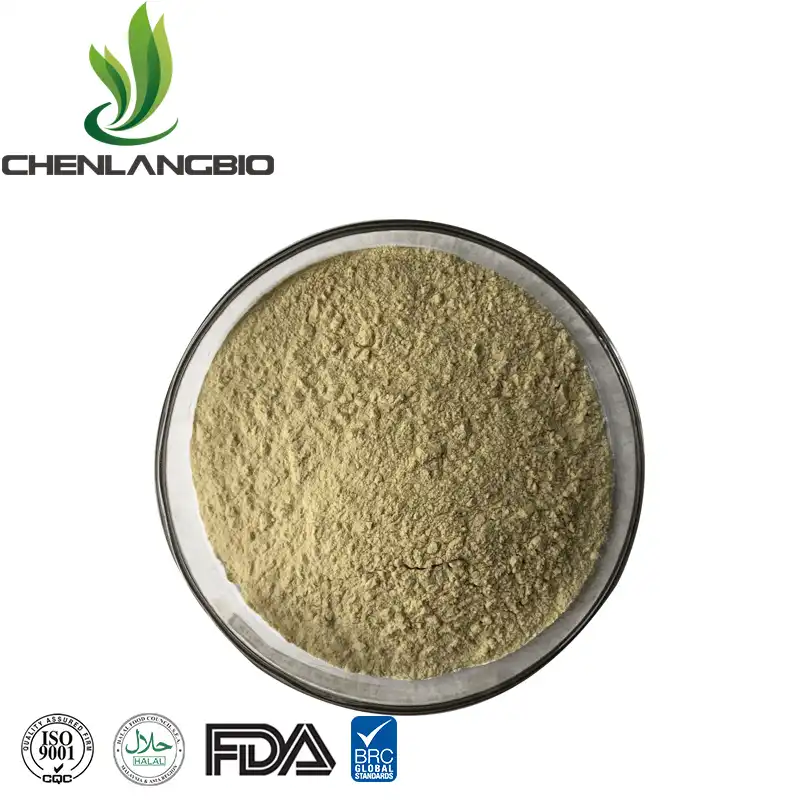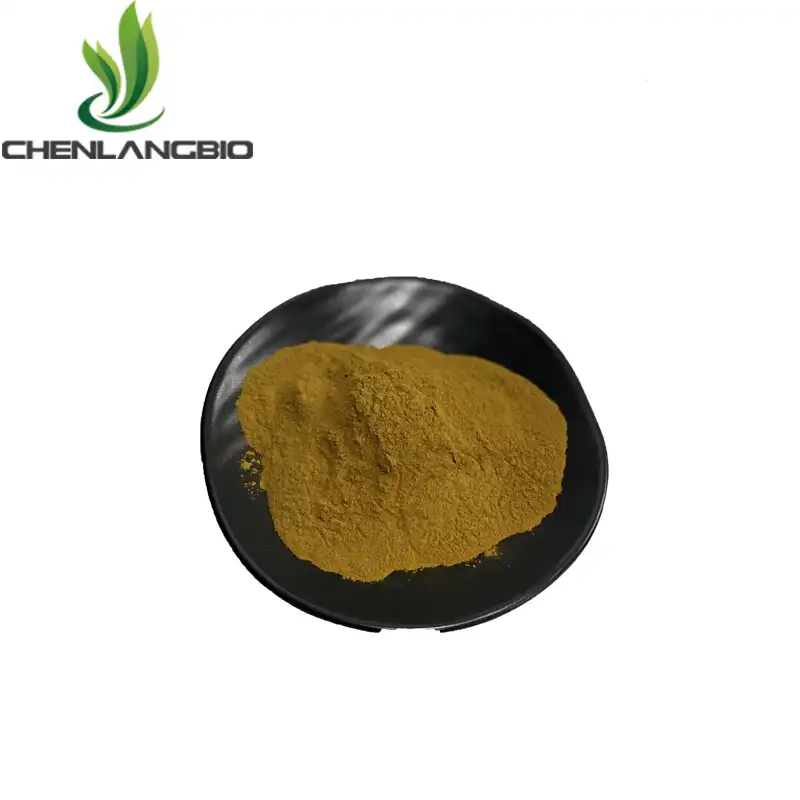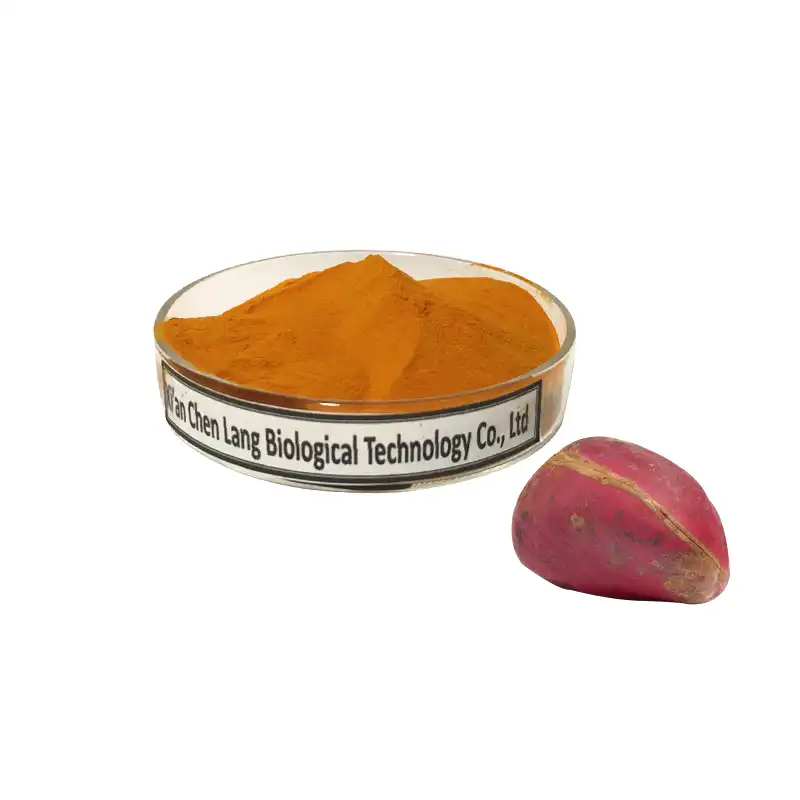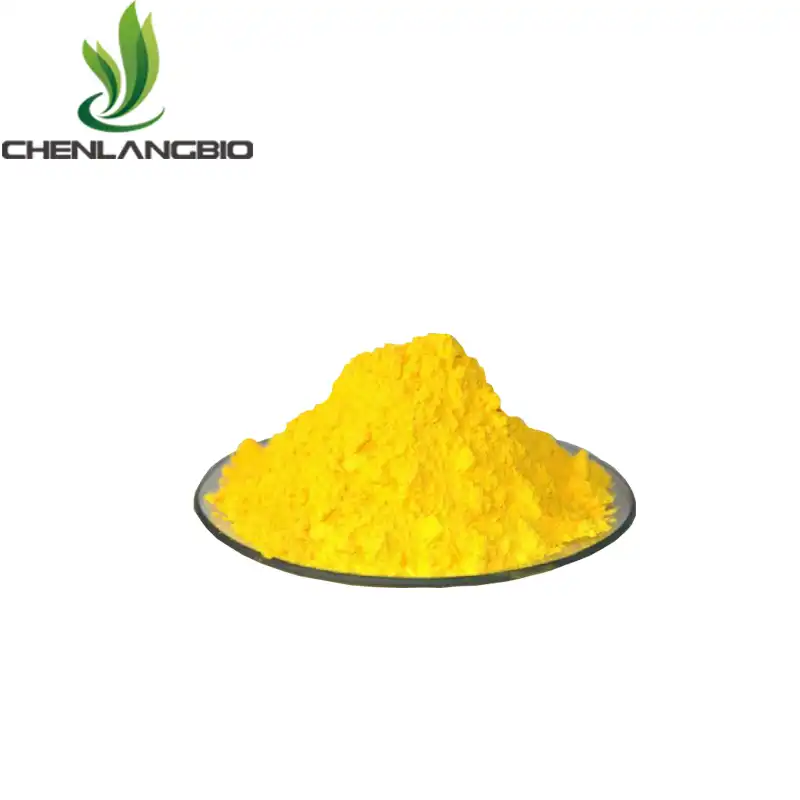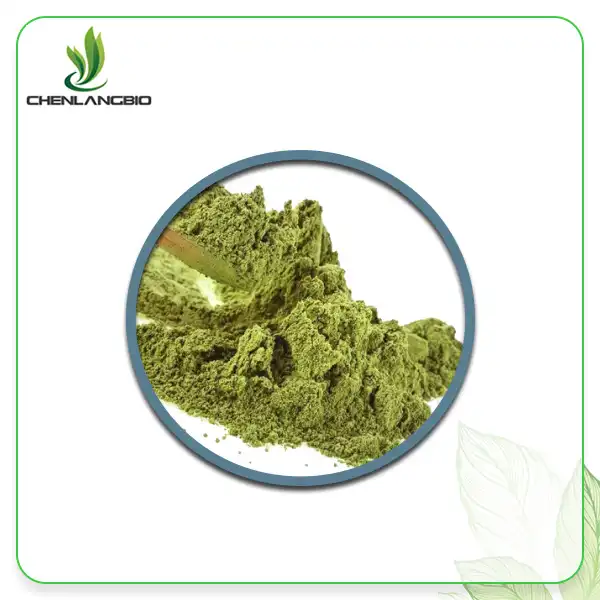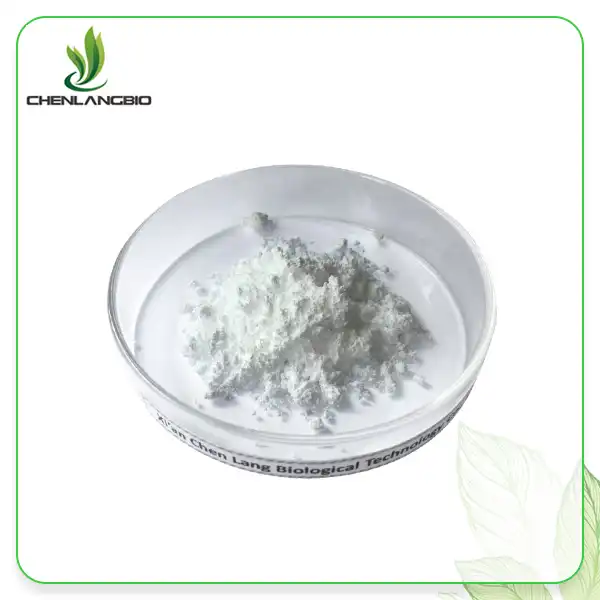Exploring the Nutritional Profile of Red Wine Extract Powder
2024-11-28 11:06:55
Red wine has long been celebrated for its potential health benefits, and now, the concentrated goodness of this beverage is available in a convenient powder form. Red wine extract powder, derived from the skins and seeds of red grapes, offers a unique blend of nutrients and bioactive compounds that have piqued the interest of health enthusiasts and researchers alike. In this comprehensive guide, we'll delve into the nutritional profile of red wine extract powder, uncover its potential health benefits, and discuss proper usage guidelines.
Key Nutrients in Red Wine Extract Powder
Red wine extract powder is a treasure trove of beneficial compounds, each contributing to its potential health-promoting properties. Let's explore some of the key nutrients found in this potent supplement:
Polyphenols
At the heart of red wine extract's nutritional profile are polyphenols, a diverse group of plant-based compounds known for their antioxidant properties. The most notable polyphenols in red wine extract include:
- Resveratrol: Perhaps the most well-known compound in red wine, resveratrol has garnered significant attention for its potential anti-aging and cardioprotective effects.
- Quercetin: This flavonoid boasts powerful antioxidant and anti-inflammatory properties.
- Catechins: These compounds, also found in green tea, may contribute to cardiovascular health.
- Anthocyanins: Responsible for the deep red color of wine, anthocyanins are potent antioxidants with potential anti-inflammatory effects.
Vitamins and Minerals
While not as concentrated as the polyphenol content, red wine extract powder does contain small amounts of essential vitamins and minerals, including:
- Potassium: An essential electrolyte that supports heart and muscle function.
- Magnesium: Important for bone health, energy production, and muscle function.
- Iron: Crucial for oxygen transport in the blood.
- Vitamin B6: Plays a role in brain development and function.
Fiber
Red wine extract powder contains small amounts of dietary fiber, primarily from grape skins and seeds. While not a significant source, this fiber can contribute to overall digestive health.
The Science Behind Red Wine Extract's Health Benefits
The potential health benefits of red wine extract powder have been the subject of numerous scientific studies. While research is ongoing, several promising areas have emerged:
Cardiovascular Health
One of the most well-researched areas of red wine extract's potential benefits is its impact on heart health. The polyphenols in red wine extract, particularly resveratrol, have been associated with several cardiovascular benefits:
- Improved Cholesterol Profiles: Studies suggest that red wine extract may help increase HDL (good) cholesterol while reducing LDL (bad) cholesterol levels.
- Blood Pressure Regulation: Some research indicates that the compounds in red wine extract may help relax blood vessels, potentially leading to lower blood pressure.
- Reduced Inflammation: The anti-inflammatory properties of red wine polyphenols may help protect against chronic inflammation, a risk factor for heart disease.
Antioxidant Protection
The high concentration of antioxidants in red wine extract powder may offer protection against oxidative stress, a key factor in aging and various chronic diseases. These antioxidants help neutralize harmful free radicals in the body, potentially reducing cellular damage.
Blood Sugar Management
Emerging research suggests that compounds in red wine extract may help improve insulin sensitivity and glucose metabolism. This could have implications for managing or preventing type 2 diabetes, though more studies are needed to confirm these effects.
Cognitive Function
Some studies have explored the potential neuroprotective effects of red wine extract, particularly its resveratrol content. While results are preliminary, there's interest in its potential to support brain health and cognitive function as we age.
Anti-Aging Properties
The antioxidant and anti-inflammatory properties of red wine extract have led to speculation about its potential anti-aging effects. While more research is needed, some studies suggest that compounds like resveratrol may activate certain genes associated with longevity.
Daily Dosage and Precautions for Red Wine Extract
While red wine extract powder offers exciting potential benefits, it's essential to approach its use with caution and awareness. Here are some guidelines to consider:
Recommended Dosage
The appropriate dosage of red wine extract powder can vary depending on the specific product and its concentration. Generally, dosages range from 100 to 500 mg per day. However, it's crucial to follow the manufacturer's recommendations or consult with a healthcare professional for personalized advice.
Timing and Administration
Red wine extract powder can typically be taken with or without food. Some people prefer to take it with meals to enhance absorption, while others find it more convenient to take it on an empty stomach. Consistency is key, so choose a time that works best for your routine.
Potential Side Effects
While red wine extract is generally considered safe for most people when used as directed, some individuals may experience side effects, including:
- Digestive discomfort
- Headaches
- Dizziness
- Mild allergic reactions (in rare cases)
If you experience any adverse effects, discontinue use and consult your healthcare provider.
Interactions and Contraindications
Red wine extract may interact with certain medications, particularly blood thinners and some types of cancer treatments. Additionally, individuals with the following conditions should exercise caution or avoid red wine extract:
- Pregnancy and breastfeeding
- Bleeding disorders
- Hormone-sensitive conditions
- Scheduled surgeries
Always consult with a healthcare professional before adding red wine extract powder to your regimen, especially if you have any pre-existing health conditions or are taking medications.
Quality Considerations
When choosing a red wine extract powder, look for products that:
- Are standardized for polyphenol content, particularly resveratrol
- Have been third-party tested for purity and potency
- Come from reputable manufacturers with good quality control practices
- Are free from unnecessary additives or fillers
Conclusion
Red wine extract powder offers a concentrated dose of the beneficial compounds found in red wine, without the alcohol content. Its rich polyphenol profile, particularly resveratrol, has sparked interest in its potential to support cardiovascular health, combat oxidative stress, and promote overall well-being. While the research is promising, it's important to approach red wine extract as a supplement to, not a replacement for, a healthy lifestyle.
As with any supplement, moderation and proper usage are key. By understanding the nutritional profile, potential benefits, and usage guidelines of red wine extract powder, you can make an informed decision about incorporating it into your health regimen. Remember, while supplements can be beneficial, they work best as part of a balanced diet and healthy lifestyle. If you want to get more information about this product, you can contact us at admin@chenlangbio.com.
References
1. Markoski, M. M., Garavaglia, J., Oliveira, A., Olivaes, J., & Marcadenti, A. (2016). Molecular Properties of Red Wine Compounds and Cardiometabolic Benefits. Nutrition and Metabolic Insights, 9, 51-57.
2. Xiang, L., Xiao, L., Wang, Y., Li, H., Huang, Z., & He, X. (2014). Health benefits of wine: Don't expect resveratrol too much. Food Chemistry, 156, 258-263.
3. Baur, J. A., & Sinclair, D. A. (2006). Therapeutic potential of resveratrol: the in vivo evidence. Nature Reviews Drug Discovery, 5(6), 493-506.
4. Bertelli, A. A., & Das, D. K. (2009). Grapes, wines, resveratrol, and heart health. Journal of Cardiovascular Pharmacology, 54(6), 468-476.
5. Smoliga, J. M., Baur, J. A., & Hausenblas, H. A. (2011). Resveratrol and health – A comprehensive review of human clinical trials. Molecular Nutrition & Food Research, 55(8), 1129-1141.
6. Weiskirchen, S., & Weiskirchen, R. (2016). Resveratrol: How Much Wine Do You Have to Drink to Stay Healthy? Advances in Nutrition, 7(4), 706-718.
Send Inquiry
Related Industry Knowledge
- How to Choose the Best Pure Pomegranate Powder
- What are the Side Effects of Centella Asiatica Extract
- Future Trends of Sodium Methylesculetin Acetate in Healthcare
- What is Sophora Extract
- Is Alpha-GPC a Good Nootropic
- Is Lufenuron Safe
- What's Difference Between Sleeping Pill and Melatonin Extract Powder
- Does Olive Leaf Extract Powder Used in Cosmetic Products
- Can Pure Fisetin Reverse Aging
- What is Marigold Flower Extract Used For



